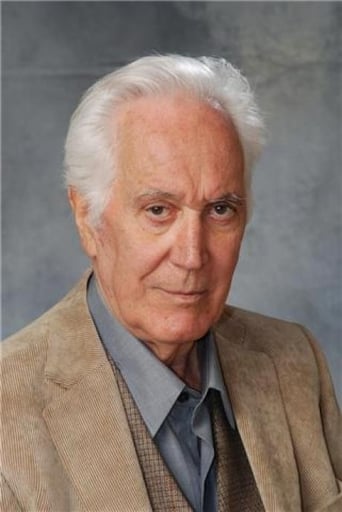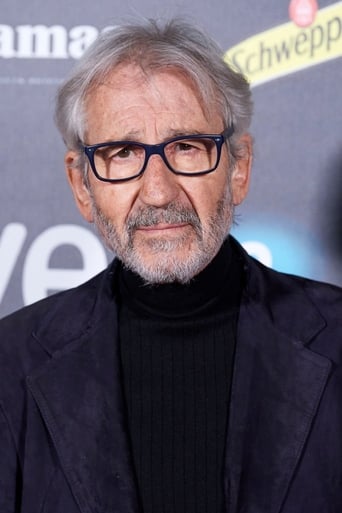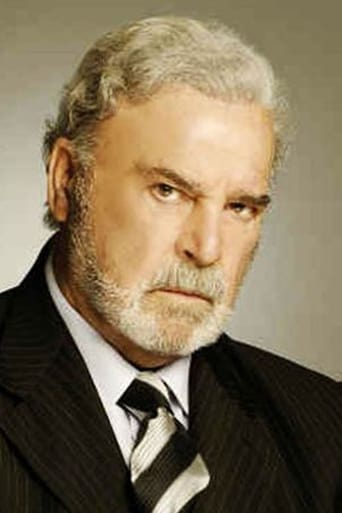LouHomey
From my favorite movies..
Dorathen
Better Late Then Never
Teringer
An Exercise In Nonsense
Myron Clemons
A film of deceptively outspoken contemporary relevance, this is cinema at its most alert, alarming and alive.
MartinHafer
Up until the 1980s, films from Argentina were heavily censored by their rightist government and films critical of the system were unheard of in this country. However, when this government fell, many films critical of this old system began to proliferate and the most famous of these internationally was "The Official Story"--which won the Oscar for Best Foreign Language Film. "A Place in the World" debuted a few years later but was not submitted by the Argentines for this award--and so the filmmakers tried submitting it was a Uruguayan film! Later, the film was disqualified, since it WAS from Argentina and was about the country--a very odd footnote, as it's only one of two films every removed from consideration after submitted to the Academy.When you watch "A Place in the World", you might not see that the message is political--and it's not nearly as obvious as in "The Official Story". Instead of being directly critical of the federal government, the film is a socialist commentary about the abuse of the landlords and the need for the common men to work together to receive equality. In this case, a jerk rich guy is intent on buying up all the farmers' wool at HIS price...or else. However, when a German geologist arrives in town, the local agitator (the school teacher) is encouraged to fight back for what is right. At the same time, the story of a sympathetic nun is a metaphor for the traditional relationship between the church and state in the land. The story is told as a flashback from the teacher's teenage son's point of view and unfolds slowly and beautifully. The acting is nice but the direction is the star to me. Well worth seeing.
runamokprods
Interesting, thoughtful mix of two genres – a coming of age film that's sweet, nice, (if occasionally a touch sappy), and a deeply moving, complex political morality play about the price one pays for trying to live by one's ideals. Two leftists, almost killed by the Argentine generals, raise their son in the backwoods, trying to help organize the people there against the local land baron. Into their lives comes a charismatic, sympathetic, but cynical geologist, unhappily working for the land owner, but unable to buy into his new friends' idealism, leading to all sorts of emotional and plot complexities.I'd like to re-see this, and I could imagine rating it even higher, but the over the top score, and few more clichéd elements stopped me from really flipping out for it, while still finding it a solid, strong, thought-proving film.
ex-x-treme
I got to see this movie by chance after reading an interview to Cecilia Roth in La Nacion online newspaper. When asked for her favorite film, she mentioned "Un Lugar en el Mundo". This movie, as suggested in many places, it's as good (or better) as "La Historia Oficial", which is one of the best Argentine movies ever. Personally, I liked this one more. It's a very warm movie about the the relationships of the characters between themselves and with the place they inhabit. Certainly, the place to shoot it was chosen wisely. Argentinian pampa and Patagonia desert have a special appeal, very difficult to describe unless you visit them, some kind of special magic. The movie depicts also the strong gravitational effect that the Catholic Church has in Argentinian culture, mostly in the countryside. As you will see around the movie, besides the frequently shown green ford falcon, diesel train, horse carriage and old ambulance, the other constant are the gatherings in or around the church. A very strong recommendation if you liked "Un Lugar en el Mundo": "Historias Minimas". This is movie shares the same type of narrative it's about human relationships of a group of people in Puerto San Julian, an Atlantic town down south in Patagonia. The difference is that Un Lugar en el Mundo has a very heavy duty cast, all consummated actors and actresses. Historias Minimas only relatively known actor is Javier Lombardo, the rest are mostly first time plays.
Keith F. Hatcher
After having seen Aristarain's excellent drama `Martín (Hache)' (1997) (qv) a few months ago, I was rather looking forward to this film coming up somewhere – anywhere – sooner or later, as I missed it ten years ago ……. I have also commented recently on `Las Huellas Borradas' (1999) (qv) with Federico Luppi, directed by Enrique Gabriel. You might think that seeing so much of this Argentinian actor in a comparatively short period of time would turn out a little tedious, if not boring. However he does have that attractively noble way of holding the screen, such that one tends to warm to him and look forward to the next time a film of his comes out. Again, Aristarain falls back on Cecilia Roth, an actress who always pleases me, and nowhere better than in `Martín (Hache)'. For `Un Lugar en el Mundo' (A Little Place in the World) Aristarain adds the Spanish actor José Sacristán, who, in years gone by, only made rather comical – sic – appearances in third rate highly forgettable films, but recently has been in a number of more serious rôles. The two young actors played natural, clean interpretations, very wholesome. Good directing here, especially.Aristarain takes a story – his own very often – and knows what to do with it. His stories are very human, such that it is not difficult to really get in there with the characters, and in this film there is no exception to this rule. Interesting to note that the main theme touches on the same as in Gabriel's film seven years later up in the mountains of Asturias and León.Lost somewhere in the middle of the great expanses of nowhere, but in fact is the province of San Luis to the west of Buenos Aires, just north of the true `pampa', some people play out their lives on the losing side in `a little place in the world'. The juxtaposition of the various characters is echoed by scenes of a horse-drawn trap-cart racing against a powerful diesel locomotive, as well as appearances by a late-fifties looking automobile.
Whereas `Martín (Hache)' is unquestionably a Hispano-Argentinian production, `Un Lugar en el Mundo' is almost totally Argentinian; Spanish and Uruguayan participation is minimal, apart from the presence of Sacristán as one of the actors. Aristarain is evidently the lance-point of contemporary Argentinian cinema production, and with this carefully toned story he does justice not only to his reputation and his actors' but also to Argentina itself. That is indeed a very worthy consideration.





